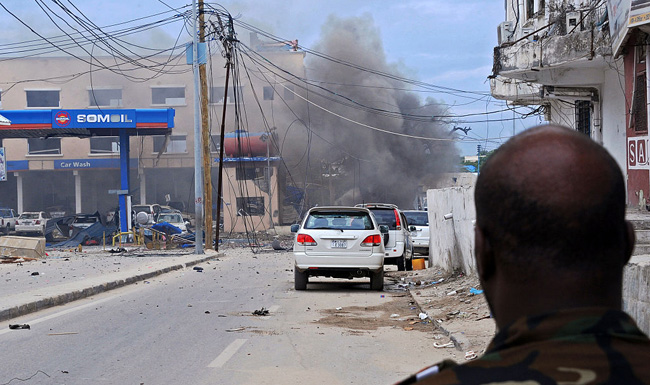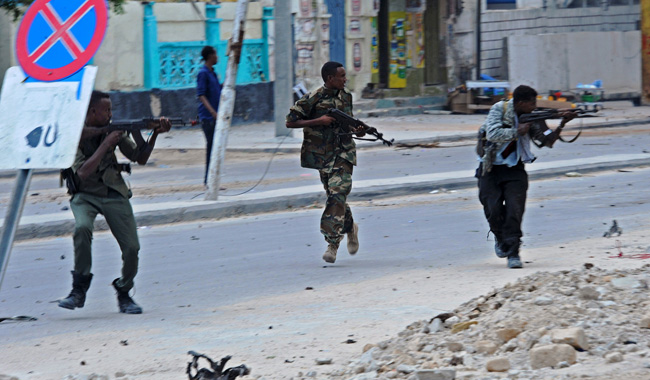
At least 12 people are dead after al-Shabab detonated a car bomb and assaulted a hotel in Mogadishu, Somalia on Saturday. According to several reports, the militants used the bomb to blast their way into the hotel and begin an attack on guests before a standoff with police. The group took responsibility for the attack in a statement to Reuters:
“We attacked the hotel which was frequented by the apostate government members,” al-Shabab spokesman Sheikh Abdiasis Abu Musab told Reuters.
https://twitter.com/somaligov/status/746781209276071937
According to NPR, the group was forced out of the capital four years ago by African Union forces. Still they are an influence in the areas and have been behind similar attacks in recent weeks, including another hotel attack that left 15 dead. Reports on Saturday’s incident are still not concrete due to the chaos at hand, with many eyewitnesses reporting that the gunmen were shooting at whoever they could see following the blast:
There are conflicting reports about the incident’s death toll — The Associated Press reports that 14 people were killed in the attack, while the Somali government says in a tweet that 12 people were killed and 20 injured. Reuters reports that at least 15 people were killed and an unspecified number were injured, including hotel guards, civilians and militants.
The bomb went off outside the gate of Hotel Naso Hablod, starting an hours-long standoff between police and gunmen, according to media reports.
It’s unclear how many hotel guests were taken hostage or how many gunman participated in the attack.

Some on Twitter shared their views of the attack, including gunfire exchanges between police and militants inside the hotel.
UPDATE : heavy exchanging fire ongoing & ambulance rushing casualties to the hospital. #Mogadishu #Somalia pic.twitter.com/n44QYZRoIl
— Osman Yusuf (@Osman_Yusuf_) June 25, 2016
Al-Shabab is an Al-Qaeda affiliate with history in the area, normally targeting hotels to their use by government officials. We’ll update this story as more information becomes available.
